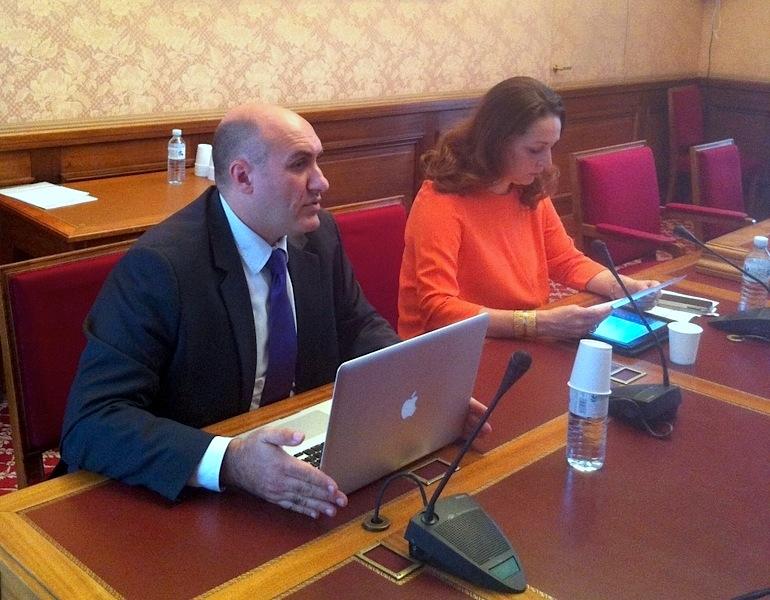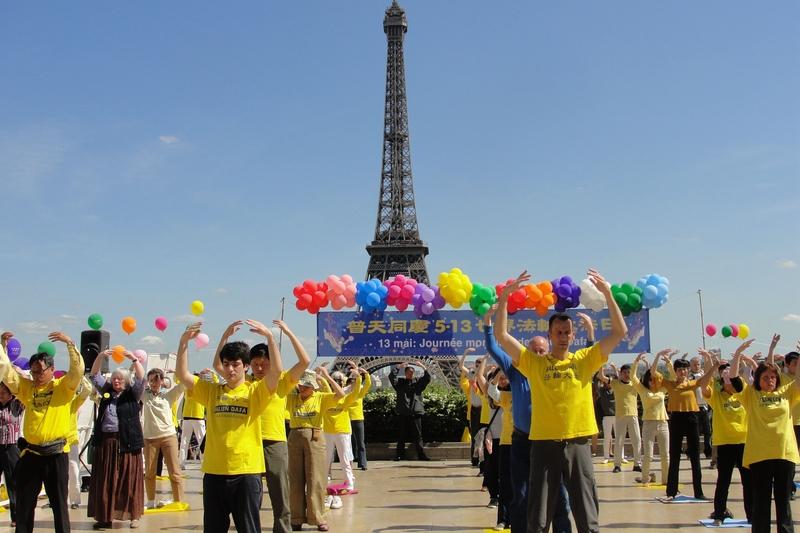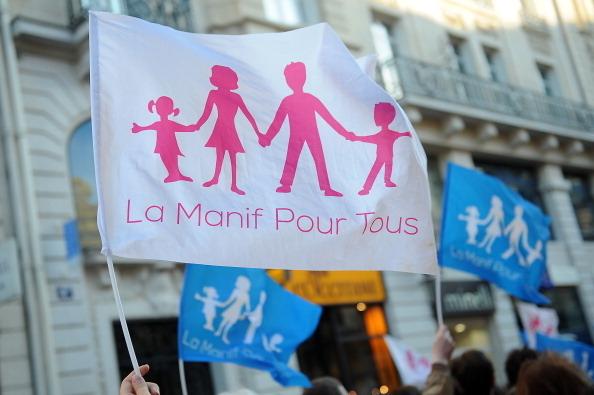PARIS—A panel discussion on organ transplant trafficking and tourism at the French National Assembly addressed the ethical issues involved in organ trafficking abroad, and, in particular, in China.
The panel, which took place Nov. 27, was led by Member of Parliament for the Bouches-du-Rhône Valérie Boyer and by Dr. Harold King, contact person in France for Doctors Against Forced Organ Harvesting (DAFOH). The conference gave the floor to professors and French surgeons.
Medical professionals took part in the discussion: Professor Francis Navarro, transplant surgeon at the Montpellier University Hospital; Professor Didier Sicard, former President of the National Consultative Ethics Committee; Professor Belghiti, transplant surgeon at Beaujon University Hospital; Professor Yves Chapuis, member of the Académie de Médecine, former surgeon, and a pioneer of organ transplantation in France; and Professor Patrick Pessaux, transplant surgeon at the Strasbourg University Hospital.
They wanted to be present to share their experiences in organ transplantation in France and abroad and to reveal the silence amounting to complicity in the medical and political fields on forced organ harvesting in China.
Context of Forced Organ Harvesting
According to Harold King, forced organ harvesting is a major ethical issue in the international community, and especially in China. Since 1980, the Chinese government has allowed the police to use, without any restriction whatsoever, the corpses of prisoners for organ transplants, with or without consent of families or individuals.
This practice violates for the first time the ethical law recognized worldwide regarding the necessity of obtaining the consent of the person involved.
This practice also results in a transplantation system without transparency, since the management of all prisons in China is entirely left in the hands of the police and the army.
Harold King spoke of his doubts concerning the Hangzou resolution signed a few weeks ago by 169 Chinese hospitals in which the Chinese government plans to limit the use of organs from prisoners sentenced to death and executed.
According to him, this resolution is, as is custom in China, a false front, like the law passed in China in 2007 prohibiting transplant tourism following the international pressure triggered by the publication of the report on forced organ harvesting by David Kilgour and David Matas and by the report by Manfred Nowak Special Rapporteur of the United Nations.
In practice, limiting the use of organs to prisoners sentenced to death has never been respected in China. Instead, the organ trade in China concerns, to a greater extent, prisoners of conscience who have committed no criminal offense. They do not appear in court or in the calculation of death row executions.
To show the game played by the Chinese authorities regarding these practices and how they communicate to the international community, King pointed out that in 2012, the figure of 1,167 people volunteering for organ donation was provided by the Chinese government. Oddly enough, King said, this is exactly the number of people, 1167, who died during the year to donate their organs.
China appears to be the only country in the world where you can get an organ in less than 2 weeks, which is inconsistent with the clinical and scientific data and figures on the number of people executed in China every year. The question therefore is the origin of this source of readily available organs.
According to various reports published by David Kilgour and David Matas, and by Ethan Gutmann, an American journalist, this organ surplus comes from Falun Gong prisoners of conscience who have been imprisoned by the hundreds of thousands in Chinese prisons since 1999. Much overlapping evidence explains the more than 200,000 organ transplants of unknown origin between 2000 and 2008.
Scientific Cooperation
According to Professor Jacques Belghiti, transplant surgeon at Beaujon University Hospital, no scientific feedback has been published concerning the results of transplants from forced organ harvesting.
Jacques Belghiti was appointed President of the International Society of Transplantation in 2006. According to him, 2006 saw an explosion in the number of organ transplants in China, with more than 500 centers, 8,000 kidney transplants (official), 4,000 liver transplants, with organs taken from death row prisoners and rampant commercialization.
This was the main industry and source of income for many hospitals. At that time, the transplant community didn’t react, as there was a country, China, which could offer virtually limitless amounts of organs from young, healthy people.
At the time, Jacques Belghiti’s role was to raise awareness—especially in America where businessmen run large scientific research international corporations—on the unacceptable actions happening in China.
It was at the very same time that he heard about Chinese-American patients going to China to be transplanted and coming back with more or less serious complications. Doctors then realized that they had to take these patients back into care by giving them anti-rejection drugs, and that it was sometimes necessary to do another transplant. For Professor Belghiti, selling organs is unacceptable wherever it may take place.
In 2008, confronted with the fact of this bank of living organs from China, health professionals from 78 countries gathered at the Istanbul conference and for the first time defined what trafficking organs and the trade in transplantation actually were, and what it meant for a number of surgeons to go to China in the name of scientific cooperation.
Back then, there was a flowering of Chinese hospital websites like holiday places promising, like a commercial, a 100 percent transplant success, few complications, 4 minutes of circulatory arrest, a 0 percent rejection rate, and so on.
These sites showed there was organized foreign collaboration. In some countries, surgical teams are a very powerful medical body connected to the ruling party, they can act as they see fit and with all means at their disposal in the organization of the organ trade.
According to Jacques Belghiti, what these hospitals and transplantation clinics have in common is that their medical operations have always been associated with a low or total lack of scientific rigor, and no publication has been made in specialized journals. According to him, in spite of all the resources that were given to these surgeons, the scientific and medical result is zero, and nothing has been left for the international community.
Training Chinese Surgeons
Professor Francis Navarro, transplant surgeon at the University Hospital of Montpellier spoke of his experience of working with a Chinese hospital. Beforehand, he wanted to make it clear that in the wake of a conference with David Kilgour, which was held in 2009 at the National Assembly on the same subject, he initiated a petition among French surgeons to raise awareness of the ethical issue.
Navarro then wanted to give it to Nicolas Sarkozy and Foreign Minister Bernard Kouchner, but the government had made it clear that he needed to calm down and be as unobtrusive as possible on the subject of forced organ transplantations in China. China is indeed a sensitive issue for the French government, and the subject of organ harvesting from Falun Gong, was carefully avoided so as not to give offence to Chinese officials and investors linked to the regime.
In 2007, Francis Navarro participated in intercollegiate exchanges between Montpellier and Chengdu in China. At that time, the CHU Montpellier team had been requested to train Chinese surgeons in organ transplantation. All conferences were planned and Professor Navarro and his team thought they would be operating on a live donor and transplant part of his liver to a recipient, leaving the donor alive. A few days before the trip, he asked for the donor’s records to get at least a minimum of information on the patient before arriving at Chengdu.
“Through this and through official channels, it was explained to me that it would be a standard transplant with a complete organ, that everything would be ready for the day I arrived and the transplant would be done with a retransmission to save all the details, ”said Professor Navarro.
It is then that he began to understand that an execution was being planned for the day of transplantation, the donor was therefore not voluntary, and humans were being used as an organ bank for transplants in China. He later learned that for an organ transplant in China, ten organs were often taken before finding the right one.
Navarro made further inquiries about the situation in China on organ harvesting. He then met the DAFOH NGO, which confirmed his findings on organ harvesting in China.
Because of the quality of their expertise, French surgeons and transplant surgeons have always had excellent relations with other universities around the world. French surgeons have been widely solicited by China. According to Navarro, there were and there are still some French transplant surgeons who are complicit in the development of transplantation in China. According to Navarro, many Chinese surgeons were trained by excellent French transplant surgeons.
In conclusion, Professor Francis Navarro notes that even now, the medical and scientific community is not interested in the problem of organ trafficking in China, and the political community is even less so. According to him, this issue will be even more acute in the future with what lies ahead in terms of commercialization of organs. It is important, according to him, to raise national awareness within the medical and political communities of the huge ethical problem that we have set before us.
Commercialization of the Human Body
According to Valérie Boyer, there is a general change of attitude towards the commercialization of the body in all areas. According to her, the text to be voted shortly on matters relating to the family at the National Assembly will see a slipping of values and a movement towards the commercialization of human beings by other human beings.
Today there is an all-over problem of organ sales between France and abroad, whether it be of blood, oocytes, spermatozoids, genital organs, etc. in relation to the evolution of society. Of course there is a great difference between taking vital organs in China by killing the donor, but it must be said that the commercialization of the human body is becoming a widespread problem.
According to Madame Boyer what still holds good today in France concerning the non-commercialization of the human body is in keeping with the French way of thinking and as far as ethics are concerned is a genuine treasure.
However, the debate on the family will lead to an opening up of the trading of the human body which would be a move backwards for French national ethics. We do not know how lucky we are in France from a public health point of view, in so far as we focus above all on treating the patient, whatever their income, and without any commercial considerations.
According to Boyer, tomorrow these principles will be violated by changing the system to allow the commercialization of the human body in all its aspects. People do not realize what it will mean for society in the future, that their own body can become a commodity for another person.
“Today the ideas taking over are: euthanasia, marketing the body, the sales of human body parts, all of which is distancing itself from the inalienable, individual, and unique characteristic of the human body,” Boyer said.
The French Way
Following the bill introduced by Valérie Boyer in 2010 in the text on Bioethics, the Department of Health stated that regulations on organ trafficking existed in France and that it was of no concern to the French. Indeed the current regulations on the commercialization of the body in France are still unique worldwide and in Europe.
According to Didier Sicard, former President of the National Consultative Ethics Committee, France remains a model country in the world regarding organ transplantation.
According to Professor Sicard, “France is much more deeply rooted in the principle of non-commercialization of the body […]. However, the French medical profession should not be the first to violate this principle, because international medical complicity is more serious and violates our civic values.”
According to him the French principle of non-commercialization is deeply rooted in the French culture, but it is not shared by other countries. The key would be to help other countries to progressively realize our ethical responsibility to the future, which is to say that the non-commercialization of the body be the universal norm rather than the reverse.
France is indeed one of the few countries in the world to have a law on bioethics, and a strictness in matters of transplantation that is extraordinarily little shared by other countries. But there is however a shortcoming in France regarding international complicity that poses an ethical problem in the country.
According to Professor Sicard, the central problem is that the French medical profession does not become complicit in matters of forced organ harvesting. This complicity could be: the training of Chinese surgeons, university and scientific exchanges, publications, the care of patients who had transplants abroad by prescribing anti-rejection drugs for them, which would be reimbursed in France, and so on.
Didier Sicard said that France must not participate in what is basically an ethical flaw by concluding that “it is impossible to support strict ethical laws in our country while at the same time have a detached attitude when outside the country.”
According to Xavier Breton, Member of Parliament for the Ain, (who came especially between meetings), there will be an opportunity for discussion on the subject when the new law on Family Affairs comes in. According to him, it is important to maintain this French ethical cultural exception.
Next Stages
The different speakers at the press conference believe that the outcome of this discussion will depend on the dissemination of this information, especially to the French doctors and surgeons who have not made a stand in this regard. France must also carry this message on the European front, so as not to stay silent and satisfied with domestic laws and regulations combined with a detached international attitude.
Two important events take place in December. On Dec. 9, a delegation from DAFOH handed over to Office of UN High Commissioner on Human Rights a petition with over 1.4 million signatures including over 300,000 from Europe asking the High Commissioner to call for an immediate halt of forced organ harvesting on prisoners of conscience, mainly Falun Gong practitioners. On Dec. 12, the European Parliament will vote on a resolution against forced organ harvesting in China.


